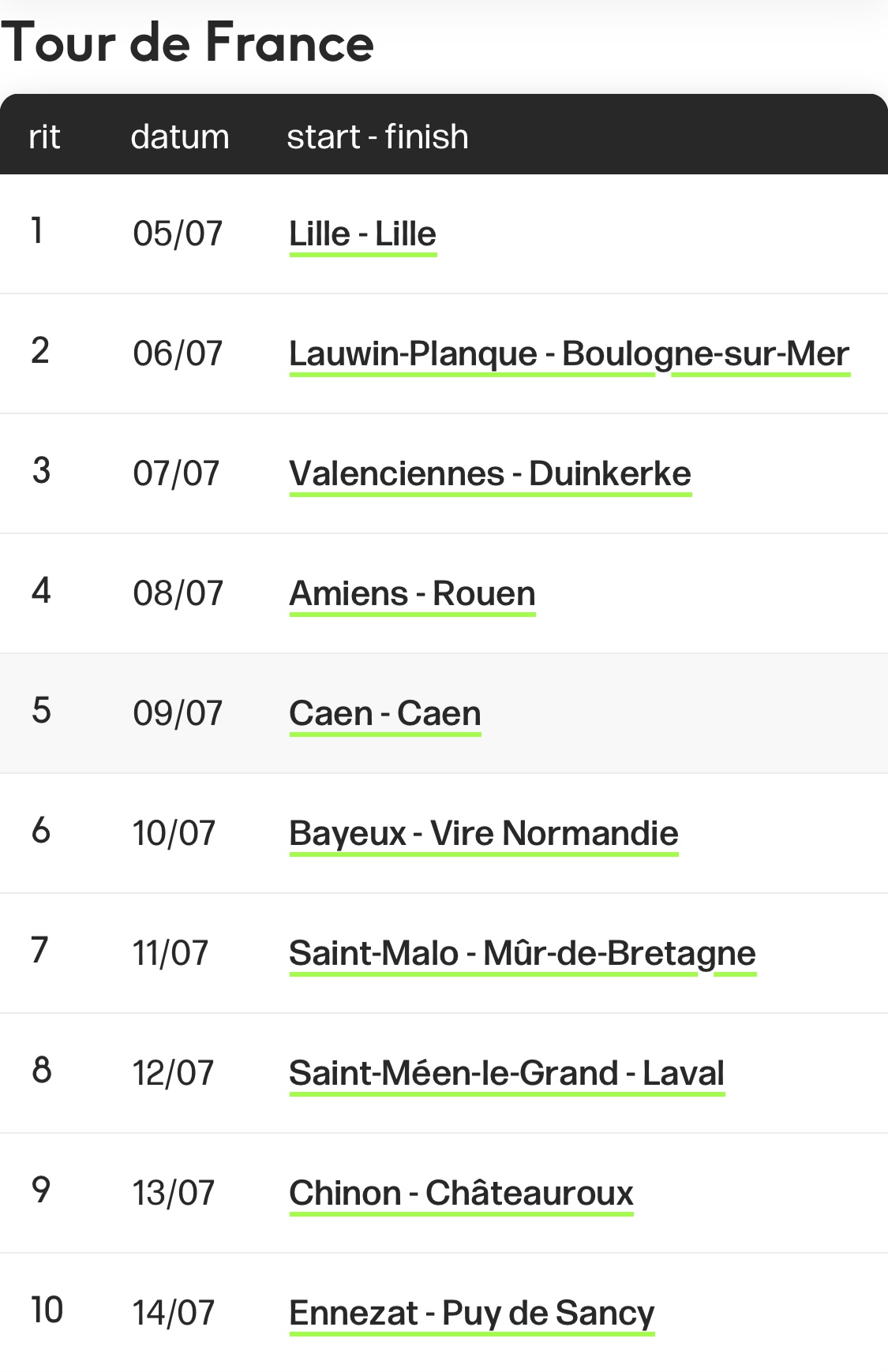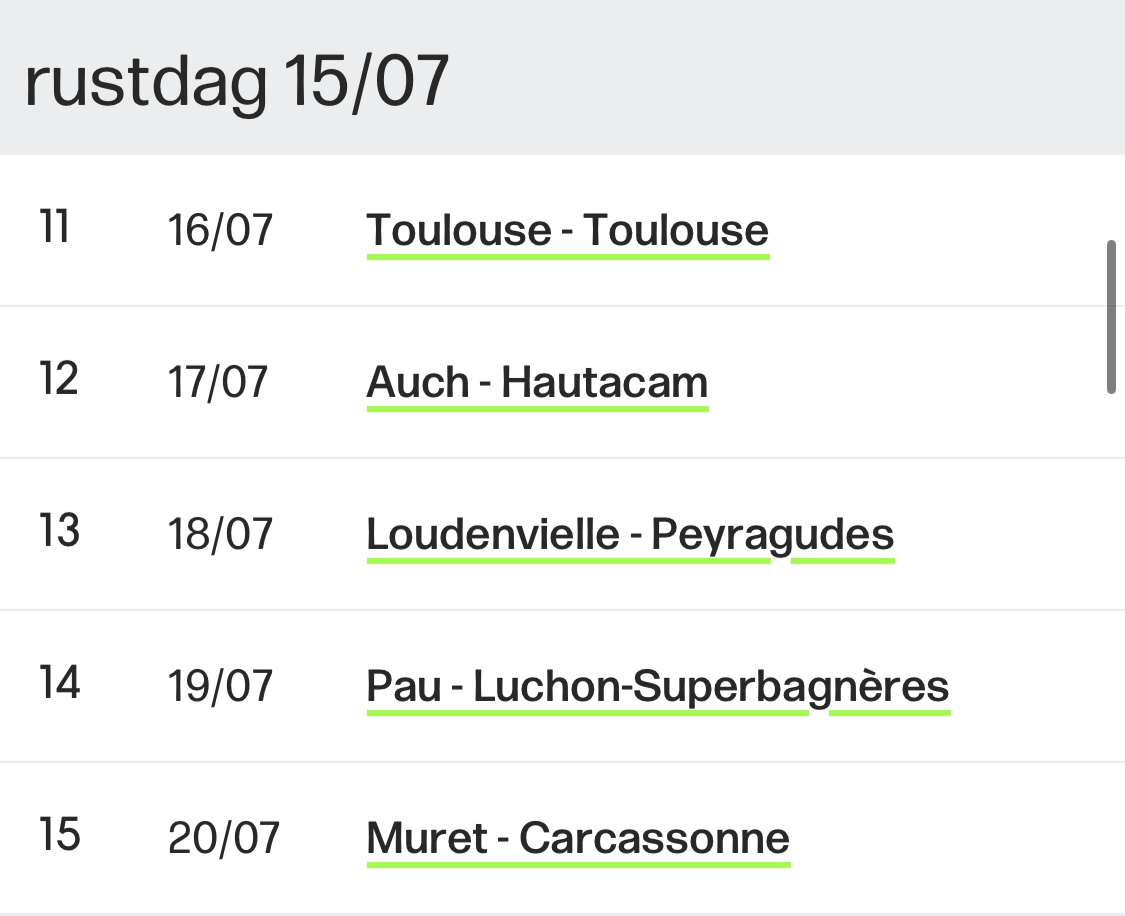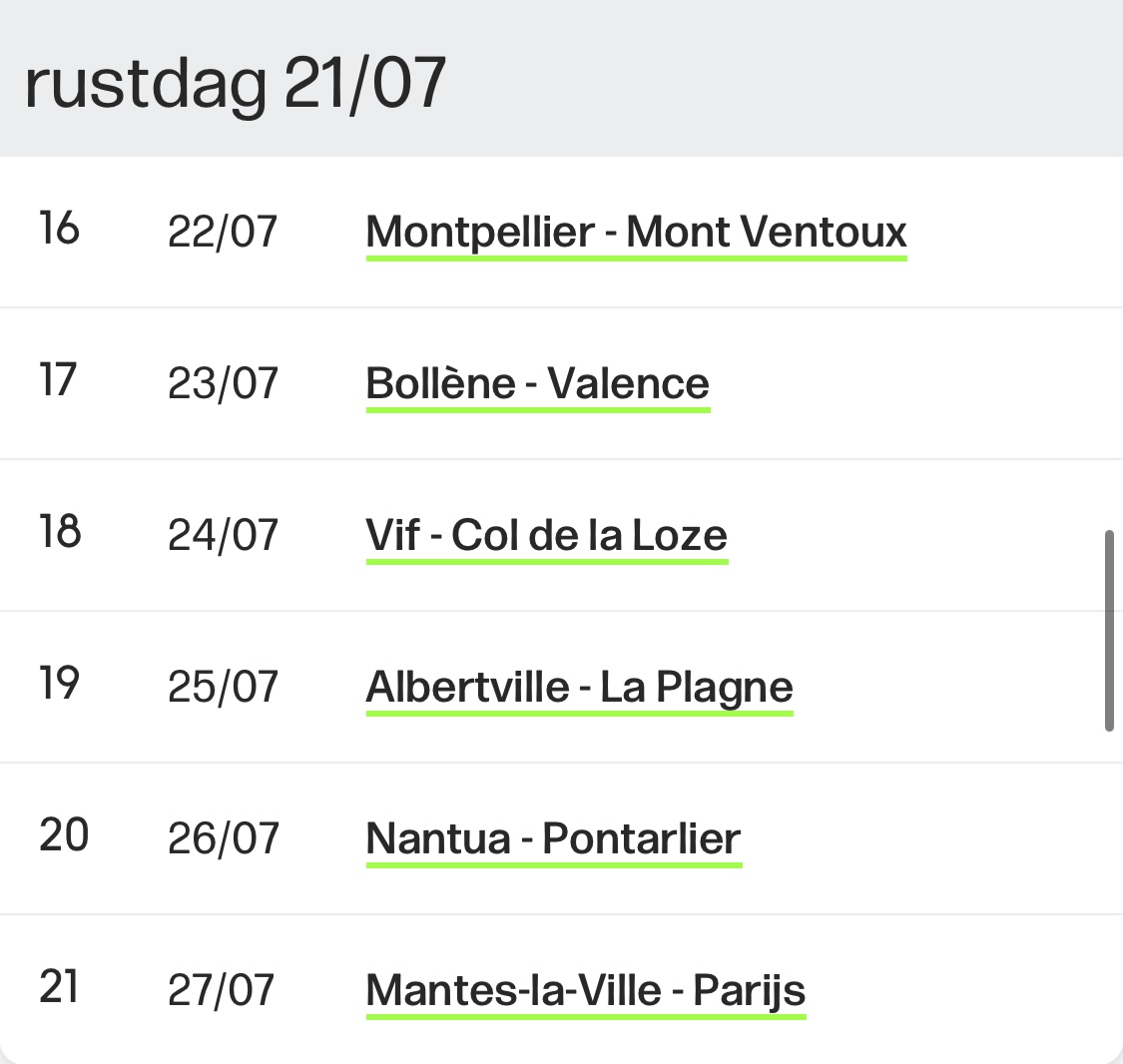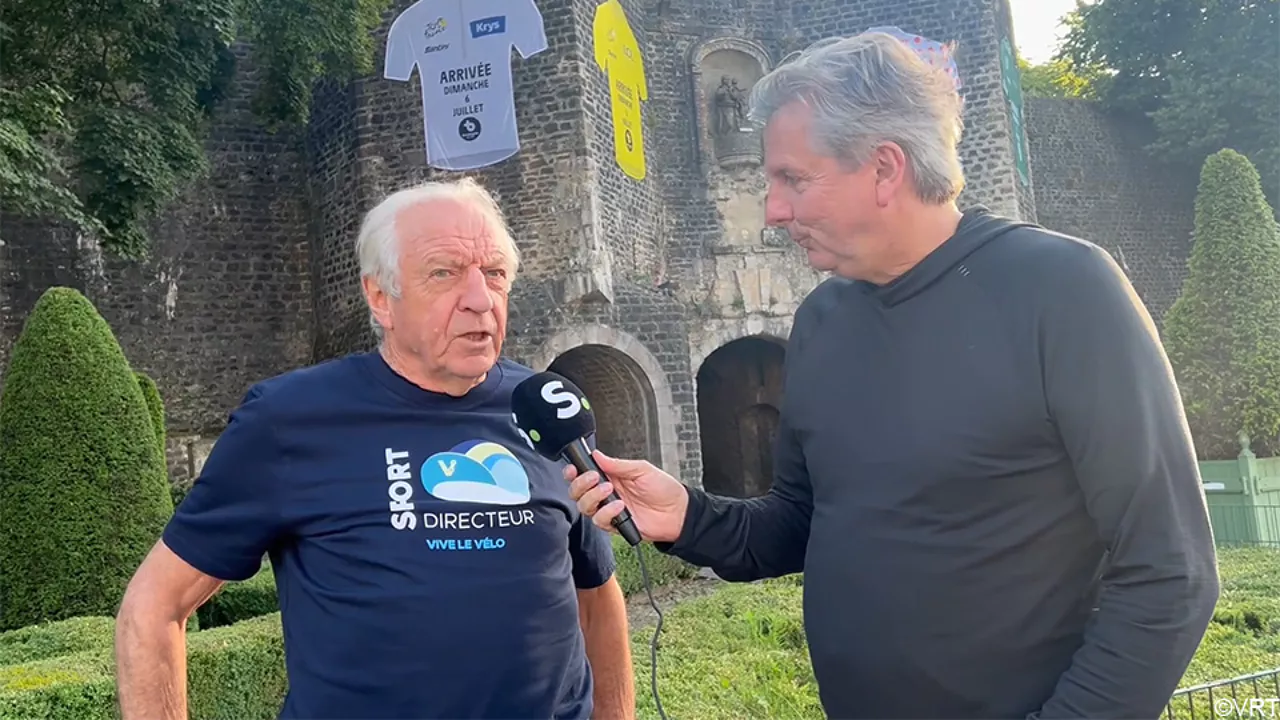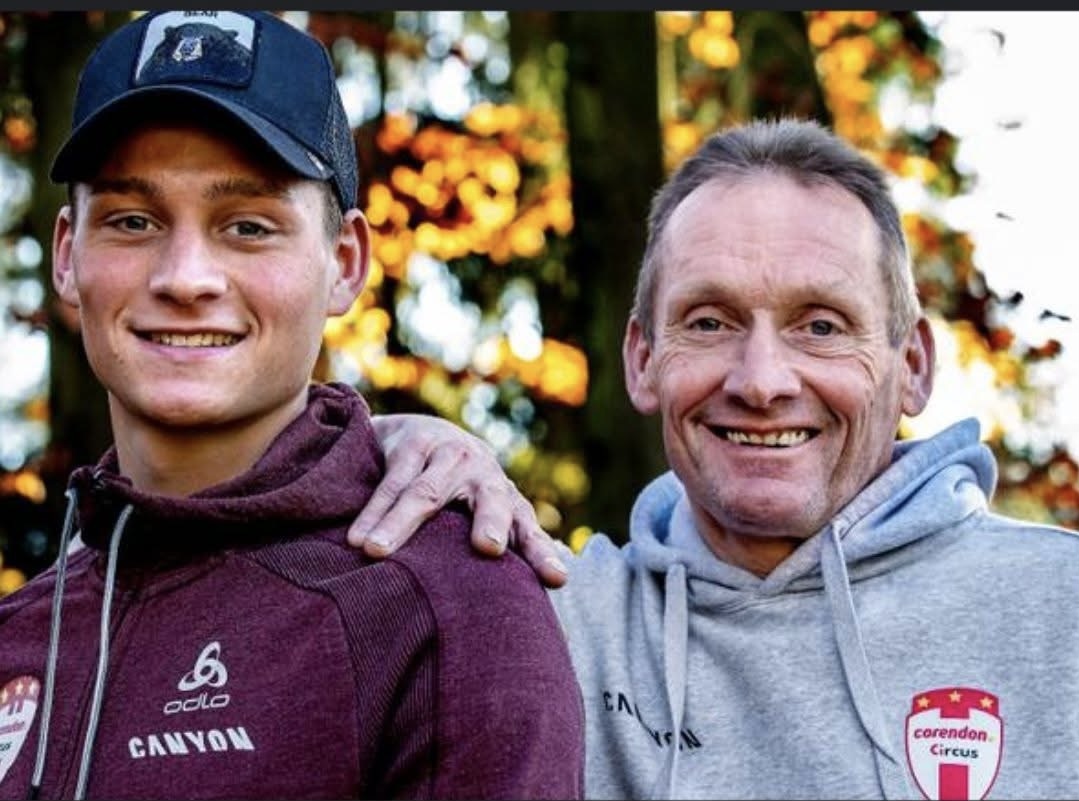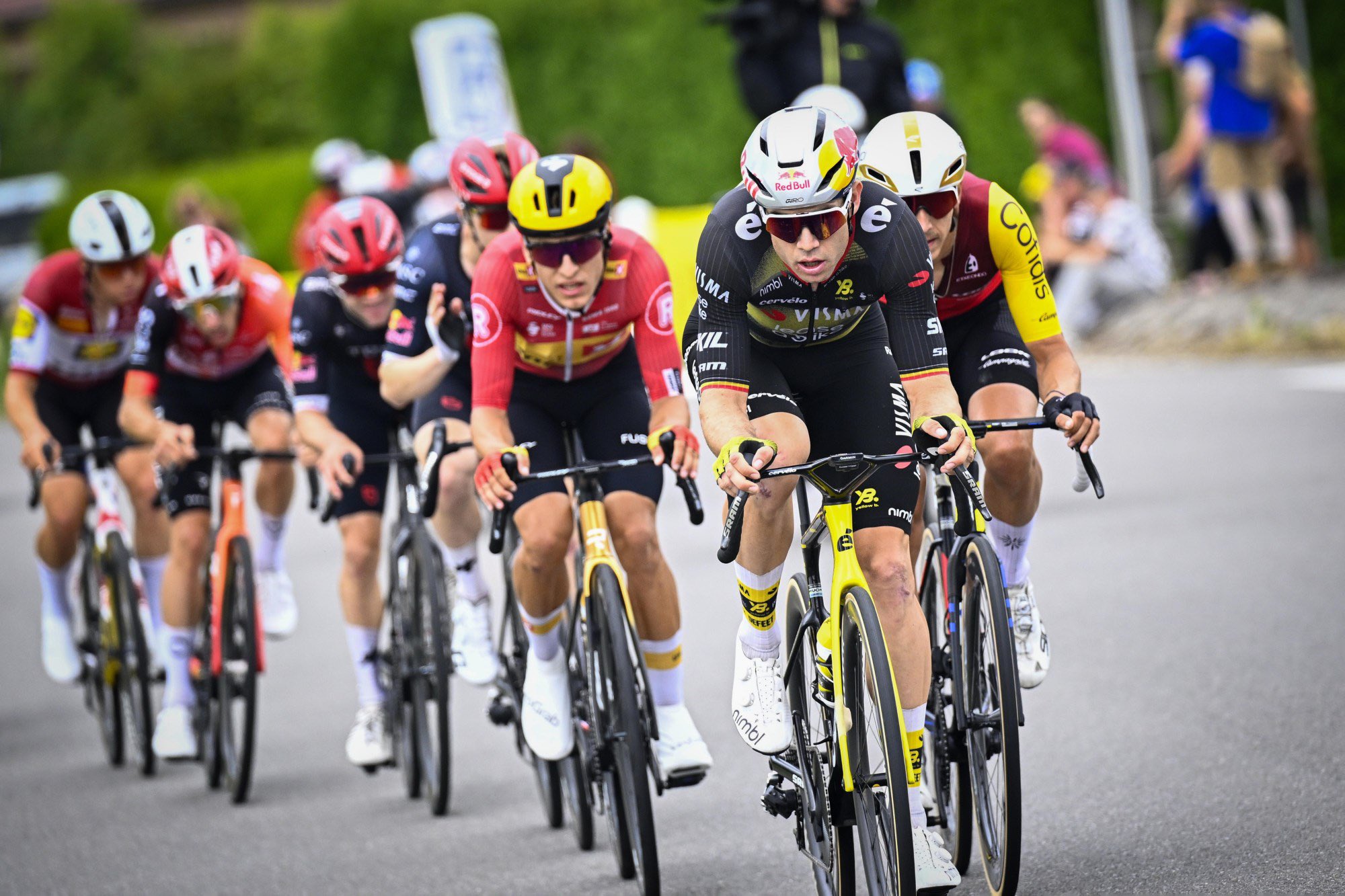Een gewaarschuwd man is er twee waard. Renaat Schotte en José De Cauwer profiteerden van de nabijheid van de Grand Départ in Lille om een tijdje geleden de eerste etappes van de Tour de France te verkennen. Wat onthouden ze van hun studiewerk over rit 2?
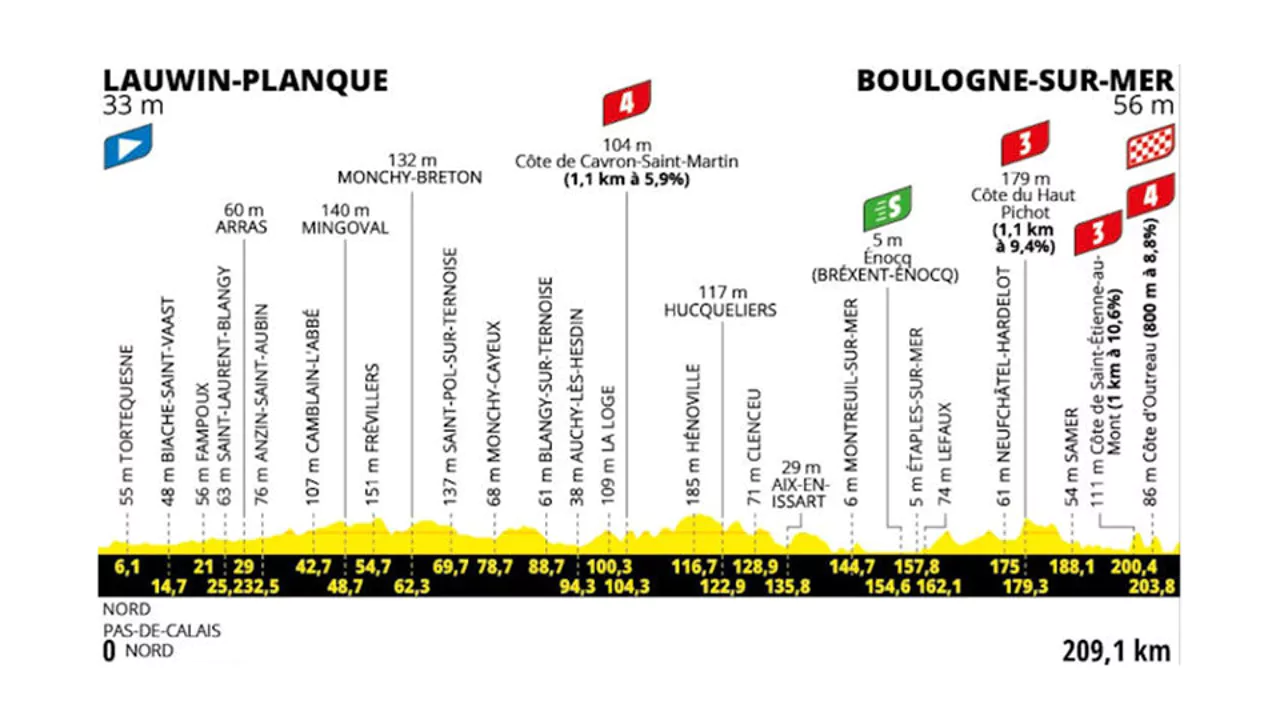
Na het sprintersbal van gisteren rinkelt de kassa naar alle waarschijnlijkheid voor de punchers. In de langste etappe van deze Tour wacht een pittige finale naar Boulogne-sur-Mer.
“Dit is een lastige helling, hoor”, vertellen Renaat en José op de Côte d’Outreau, de laatste springplank van de dag op zo’n 5 kilometer van de finish. “Het is pittig en we krijgen een overname van de gele trui.”
“De drietand in de finale is mooi voor mannen als Thibau Nys, Wout van Aert en Mathieu van der Poel, maar ook voor de klassementsmannen. Een sprinter die dit overleeft, moet héél goed zijn.”
“Als je hier alleen wil weggeraken, dan moet je boven toch een tiental seconden hebben. Dat lijkt me moeilijk. Een sprint van een man of 10 à 15, dat zou zomaar kunnen.”
5 sterren
Ook de aankomst in het kuststadje, waar Peter Sagan jaren geleden à la Forrest Gump won, kan ons duo bekoren.
“Het is een beetje vloeken in de kerk, maar dit is geweldig mooi, een Italiaanse 5 sterren-aankomst in Frankrijk. Het wordt een hoogdag”, jubelt Renaat.
“Geef die 5 sterren ook maar aan de finale”, vult José aan. “Het wordt spectaculair. Het laatste uur zal tellen voor 3. We krijgen hier een superwinnaar.”
